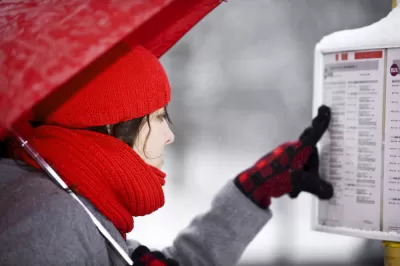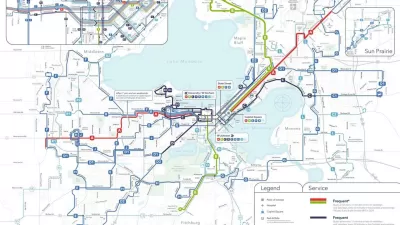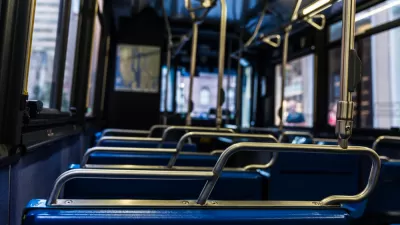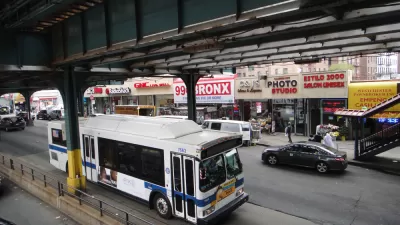Next City introduces the key concepts included in TransitCenter's "Who's on Board" report.

Ken Kinney reports on a new study from TransitCenter, titled "Who's on Board" [pdf]. The report identifies improvements for transit to increase ridership after surveying approximately 3,000 people in Raleigh, Denver, and new York. According to Kinney, "the report makes the expected suggestions for improving transit — increase frequency and speed — but also comes to some conclusions that question transportation industry dogma regarding who rides transit and why."
The dogma Kinney refers to is the distinction between "choice riders" and "captive riders." According to Kinney's explanation of TransitCenter;s position on this distinction, "dividing people this way can be used to justify poor quality transit or flashy upgrades that don’t actually improve reliability, assuming people who have cars must be won over by nice amenities, while people without cars will ride transit no matter what."
Instead of the traditional dichotomy, TransitCenter suggests separating transit riders into three groups: "occasional riders who take transit once in a while, commuters who use transit regularly, but only to get to and from work, and all-purpose riders who take transit to serve a variety of their needs."
The report includes results of the survey on questions about the matters of importance when it comes to transit. At the top of the list: frequency of service. At the bottom of the list: power outlets and WiFi.
FULL STORY: Transit Riders Want Good Service, Not Free WiFi

Alabama: Trump Terminates Settlements for Black Communities Harmed By Raw Sewage
Trump deemed the landmark civil rights agreement “illegal DEI and environmental justice policy.”

Study: Maui’s Plan to Convert Vacation Rentals to Long-Term Housing Could Cause Nearly $1 Billion Economic Loss
The plan would reduce visitor accommodation by 25% resulting in 1,900 jobs lost.

Planetizen Federal Action Tracker
A weekly monitor of how Trump’s orders and actions are impacting planners and planning in America.

Parklet Symposium Highlights the Success of Shared Spaces
Parklets got a boost during the Covid-19 pandemic, when the concept was translated to outdoor dining programs that offered restaurants a lifeline during the shutdown.

Federal Homelessness Agency Places Entire Staff on Leave
The U.S. Interagency Council on Homelessness is the only federal agency dedicated to preventing and ending homelessness.

Restoring Northern India’s Himalayan ‘Water Temples’
Thousands of centuries-old buildings protect the region’s natural springs and serve as community wells and gathering places.
Urban Design for Planners 1: Software Tools
This six-course series explores essential urban design concepts using open source software and equips planners with the tools they need to participate fully in the urban design process.
Planning for Universal Design
Learn the tools for implementing Universal Design in planning regulations.
Caltrans
Smith Gee Studio
Institute for Housing and Urban Development Studies (IHS)
City of Grandview
Harvard GSD Executive Education
Toledo-Lucas County Plan Commissions
Salt Lake City
NYU Wagner Graduate School of Public Service





























